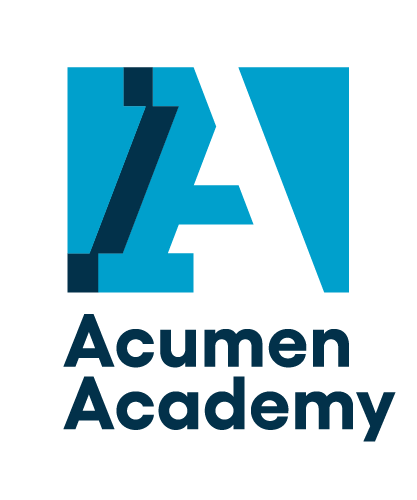Listening to customers to uncover your value proposition
Unlock the importance of listening to customers to shape a value proposition that truly meets their needs and drives impact
Featured speakers

Caren Wakoli
East Africa Acumen Fellow

Achint Sanghi
India Acumen Fellow

Vijay Sai Pratap
India Acumen Fellow

Caren Wakoli
East Africa Acumen Fellow
Achint Sanghi
India Acumen Fellow
Vijay Sai Pratap
India Acumen Fellow
Transcript
Caren Wakoli, Founder & Executive Director, Emerging Leaders Foundation (ELF)
The value proposition, where I started was: I am passionate about mentorship, coaching, developing leaders, nurturing young people, and that is what I was offering to the community.
Things were not working out.
Then I joined the East Africa Acumen Fellowship in 2014, I discovered that value proposition is not about what you're good at and what you want to offer the world. It's: what is the gap and how are you proposing to fill in that gap or to address the gap? More about value, knowing the value, knowing what you're selling and what you're offering to the world in service of.
Achint Sanghi, CTO & CEO, Gramhal
Our journey has been one of iteration. We started with a completely different model from what we have today.
I think the first piece of advice I would give to any social entrepreneur is to spend time in communities that they're hoping to serve and to really try and understand what problems they're facing, not through self-reporting and what problems people are telling you they're facing, because they may not often tell you their problems, but through adjacent ways of observing.
What are things that they do ask for or where do they lead conversations that you have with them? Because there's a lot of insight when you listen and you let others speak. They often fill up the space and will end up telling you things, not always directly, but very indirectly, if you can examine what their pain points are. It's key to remember that they might not actually articulate that in words, but when you listen to what they're telling you, you might be able to figure out pain points that they have.
You have to think about the scale that you're trying to achieve, and you have to figure out if there's anything structurally within the community that you're working with that prevents your idea from reaching a scale. Or are you just not really solving a problem that's big enough or that people will pay for?
Vijay Sai Pratap, Co-founder & CEO, Gram Vaani
I think, with any other entrepreneur, I think we should ideally not be going with the product-centric approach, as in saying that we've got a product, we've got a service, and what's in it for you, but more importantly, focus on what is their problem statement that you are trying to solve. I think that's the fundamental in many ways. You're going and listening to their problems, their challenges, and then see how can you help them. To keep listening to their voices, their feedback, create those spaces for that feedback.
It's also the humility to understand that you will have to iterate, you will have to keep changing.
Key takeaways
Listen to customers to uncover their problems - then deliver solutions that help them address these
Listen to both spoke and unspoken cues to refine your product or service
Have humility and stay open to iterating
